Update (February 21, 2024): Victory! Following multiple investigations and years of campaigning by PETA entities—including hundreds of thousands of e-mails from our compassionate supporters—African state leaders have approved a ban that makes the slaughter of donkeys for their skin illegal across the entire continent.
UN INT Intro Text w/ Centered Large Responsive Image - *Important Note* You must UNLINK this shared library component before making page-specific customizations.
Update: June 2020
Earlier this year, Kenya's cabinet secretary for agriculture announced a ban on all donkey slaughterhouses in the country, but it has now been rescinded. Donkeys need your help more than ever. Please take action below and demand that Kenya shut down its donkey slaughterhouses.
*****
In 2017, a PETA investigation revealed that donkeys in China are hit in the head with a sledgehammer and their throats are cut with a knife so that their skin can be boiled down to make gelatin for a traditional Chinese medicine called ejiao. A new PETA investigation has found horrific abuse inside Kenya's donkey slaughter industry, which exists only to meet China's demand for ejiao. The footage reveals frightened donkeys being cruelly beaten by workers at government-sanctioned slaughterhouses.
Donkeys Transported for Days Before Slaughter
Kenya has opened three donkey slaughterhouses in the last three years. The donkeys are transported to them by truck from neighboring countries that have enacted policies to stop this cruel practice, such as Ethiopia, Tanzania, and Uganda. The grueling trip can take several days.
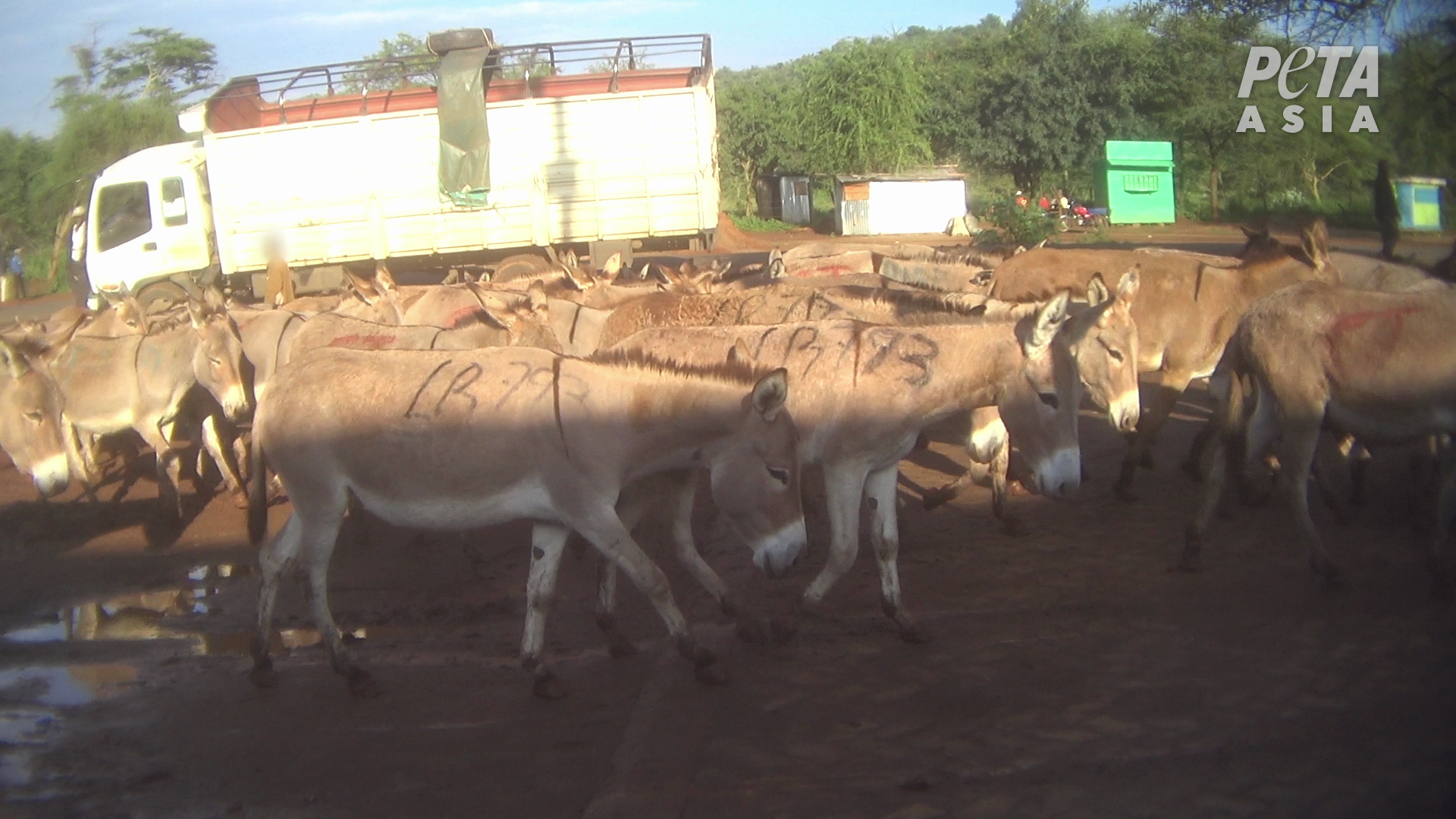
Donkeys Die, Become Injured During the Journey
Eyewitnesses found dead donkeys who did not survive the torturous journey dumped outside a slaughterhouse. They also saw a donkey who appeared to be injured and unable to stand up. Workers dragged her out of a truck and left her at the front gate of the same facility. Eyewitnesses didn't see her receive any pain relief or treatment—she was simply left to suffer from her injuries.
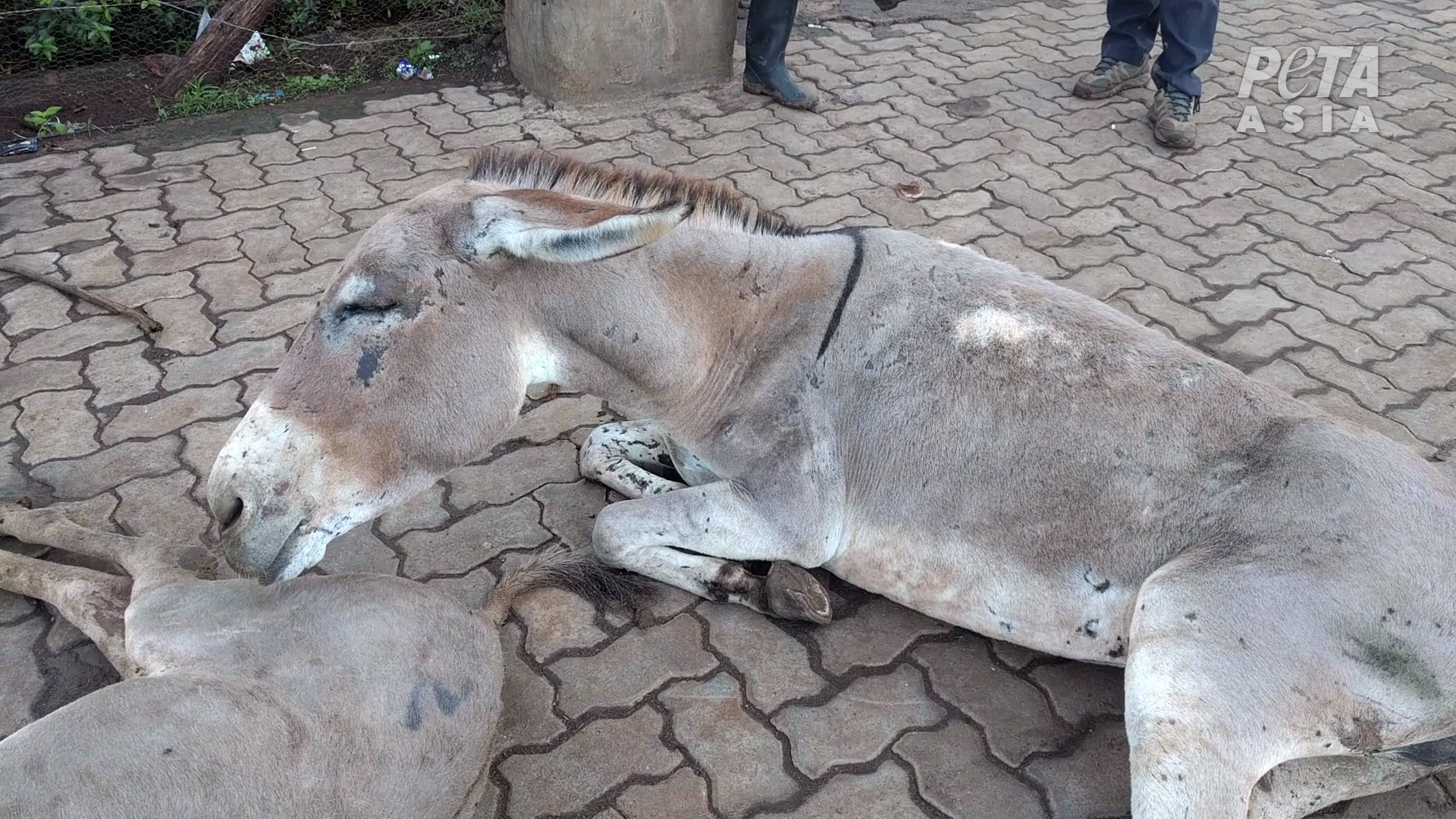
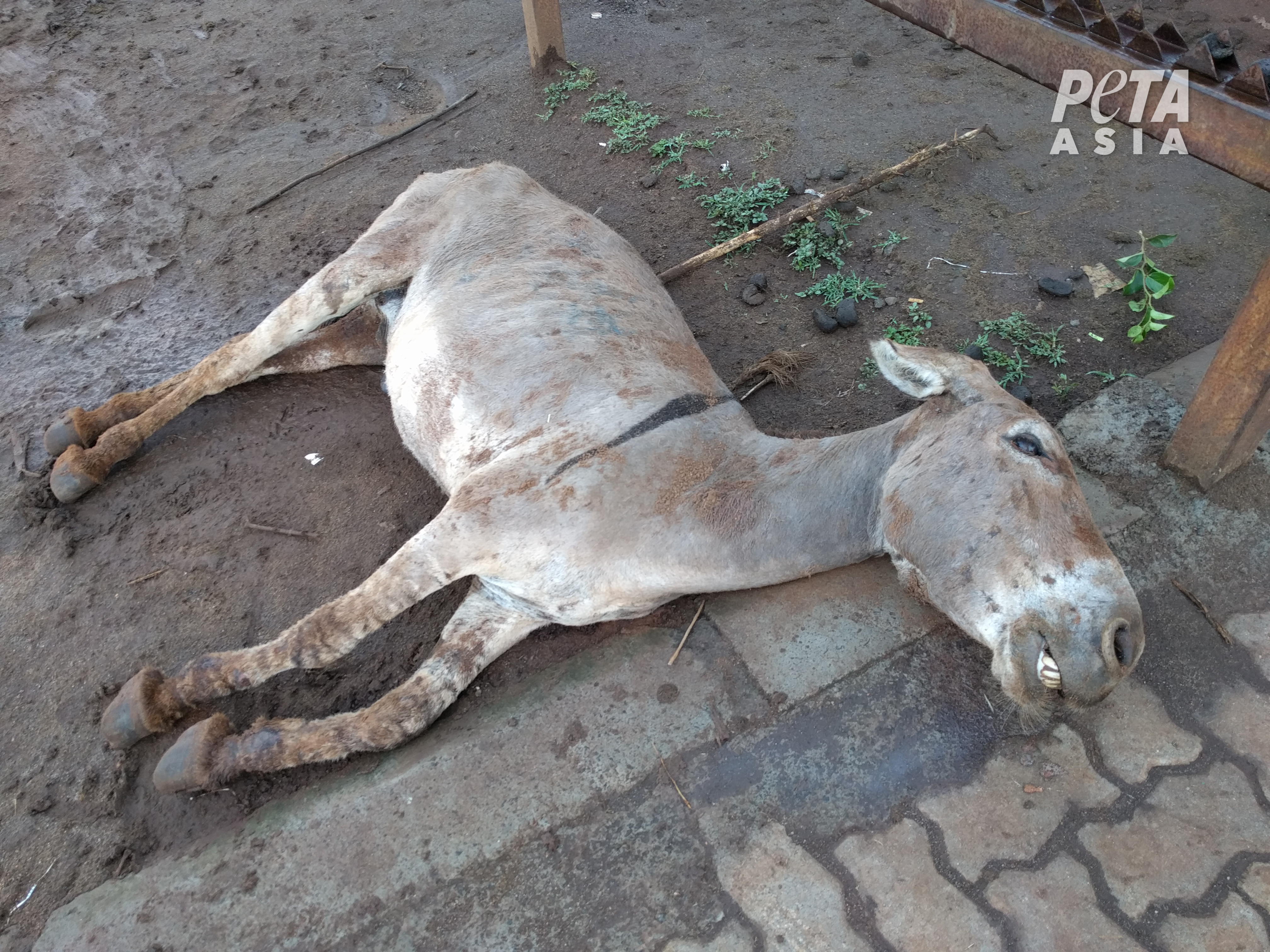
Kenya Must Ban This Cruel Practice
Many African countries—including Botswana, Burkina Faso, Mali, Niger, Senegal, Tanzania, and Uganda—have banned the export of donkey skin or have closed down Chinese-owned slaughterhouses. Yet, despite a warning from China's official National Health and Family Planning Commission that donkey-hide gelatin is really just "boiled donkey skin," donkey slaughterhouses continue to operate in countries like Kenya in order to meet China's demand for ejiao.
There are virtually no laws against the abuse of animals on farms or in slaughterhouses in Kenya, so none of the violence captured in the footage is punishable from a legal standpoint.
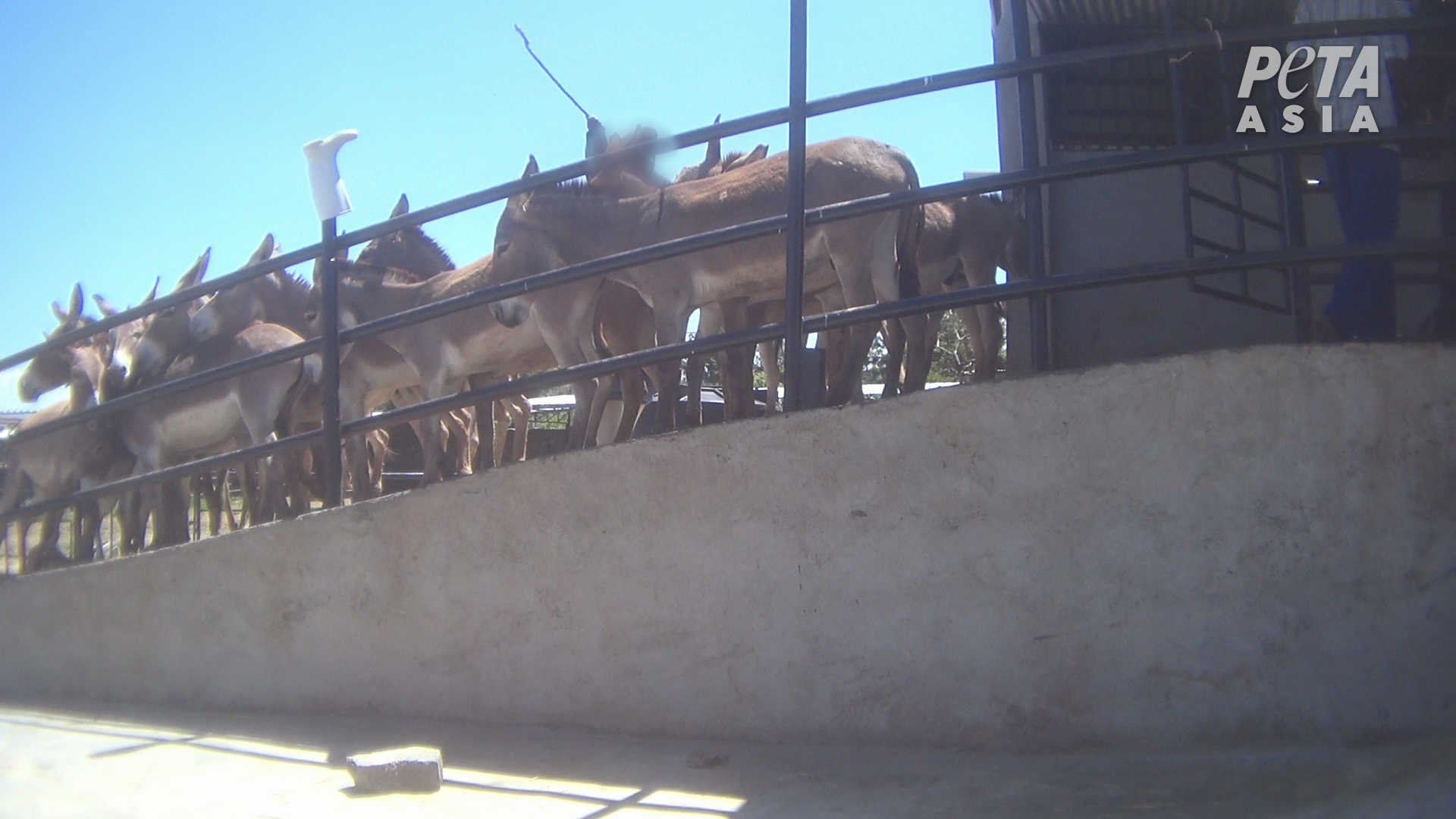
PETA and its affiliates have been pressuring officials, companies, and consumers around the world to stop supporting this cruel industry. There are numerous alternatives to ejiao, including modern medications and herbal medicines, that are more effective and don't require animals to be killed.
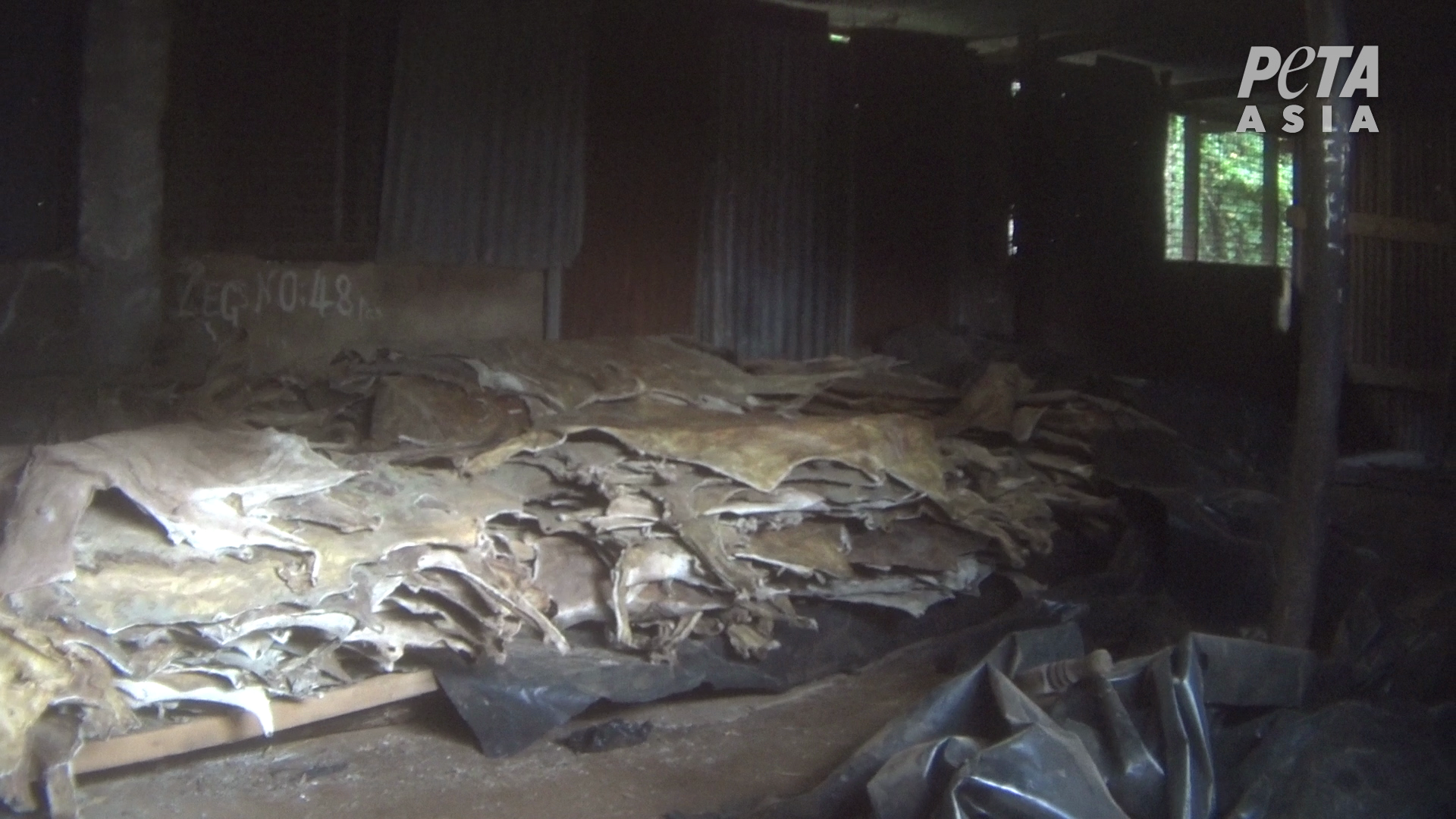
What You Can Do
Medicine made from animal parts doesn't belong in this century. As consumers, we can reject cruelty to animals and save donkeys' lives simply by choosing vegan alternatives, never buying ejiao products, and refusing to shop at stores that sell them. For the sake of suffering donkeys, please read ingredient lists and steer clear of medicines, beauty products, candy, and energy drinks containing ejiao.
Please also ask Kenya's cabinet secretary for agriculture to ban all Kenyan donkey slaughterhouses and to stop supporting China's cruel ejiao trade.